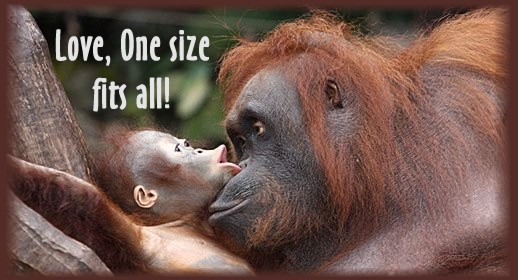
29th April 2012
Hundreds of critically endangered orangutans could be wiped out by the end of the year if palm oil companies keep setting land clearing fires in their peat-swamp forests, campaigners say.
Their forest habitat although officially protected, is hemmed in by palm oil plantations, including one that was granted a permit just last year.
"They are just barely hanging on," said Ian Singleton, conservation director of the Sumatran Orangutan Conservation Program of the apes who live in the Tripa forest on the coast of Aceh province in western Indonesia.
"It is no longer several years away but just a few months or even weeks before this iconic creature disappears," he said.
Land clearing fires, several set inside the perimeters, have sent orangutans fleeing and some risk being captured or killed by residents. Others will simply die, either directly in the fires or of starvation and malnutrition.
There are only 6,600 wild Sumatran orangutans left. The Tripa forest, which in the 1990s was home to 3,000 of them now has only 200. Just 12,260ha (30,400 acres) of Tripa's 60,000ha (148,300 acres) of forest remains
As well as habitat destruction orangutans are also becoming increasingly endangered due to them being killed for the bushmeat trade and young orangutans being captured to be sold as pets, which usually entails the killing of their mothers who die whilst trying in vain to protect their babies
Getting to know orangutans
The name orangutan (also written as orang-utan, orangutang and ourang-outang) is derived from the Malay and indonesian words orang meaning "person" and hutan meaning forest, thus the "person of the forest." Orang Hutan was not originally used to refer to apes, but forest dwelling humans. The Malay words used to refer specifically to the ape is is maias and mawas, but it is unclear if those words refer only to orangutans, or to all apes in general
Orangutan hair is typically reddish brown unlike the black hair typical of chimpanzees and Gorillas
Males and females differ in size and appearance. Dominant adult males have distinctive cheek pads and produce long calls that attract females and intimidate rivals
Orangutans are the most solitary of the great apes, with social bonds occuring primarily between mothers and their dependent offspring, who stay together for the first two years
Fruit is an important part of an orangutans diet however they will also eat vegetation, bark, honey, insects and even birds eggs
Orangutans can live for thirty years both in the wild and in captivity
Orangutans are among the most intelligent primates and use a variety of sophisticated tools, also constructing elaborate sleeping nests each night from branches and foliage. They have been extensively studied for their learning abilities
Find out more
For more information about orangutans, including how to adopt one go to:



